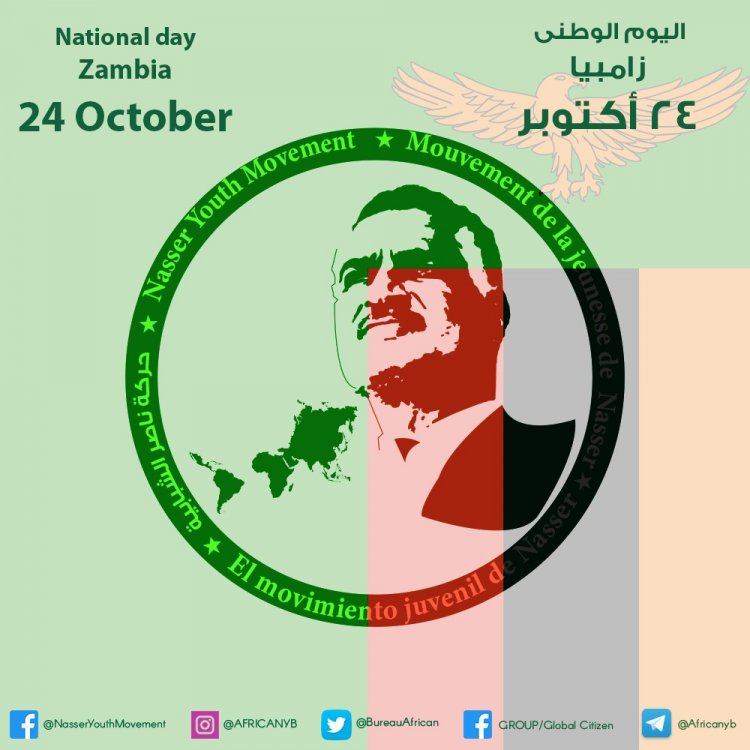The 58th Anniversary of Zambia's Independence: Harvest of Kaunda's struggle and the loyal support of Nasser

On this day, October 24th, 1964, Zambia gained its independence from the British colonizer.
The history of this colonization dates back to 1888, when Cecil Rhodes, the leader of the British South Africa Company, obtained mineral rights in the region. With the further discovery of copper and mineral deposits, the company took control of other areas in the region and merged them together in 1911 to form Northern Rhodesia (currently Zambia).
In 1924, the British government took over the administration of Northern Rhodesia and appointed a governor for it.
In 1953, Britain established a federation between Northern Rhodesia (Zambia), Southern Rhodesia (Zimbabwe), and Nyasaland (Malawi). This federation met with strong opposition from the African peoples under the influence of this colonization, and this resulted in the emergence of the nationalist parties, foremost among them, the United National Independence Party (UNIP), led by leader Kenneth Kaunda. The efforts of these parties intensified and began to pass resolutions calling for Northern Rhodesia's secession from the federation and demanding full internal self-government. With the weakening of the federation and its subject to successive crises and severe resistance, Britain declared the dissolution of this federation in 1963. Northern Rhodesia became the independent Republic of Zambia on October 24th, 1964.
On the Egyptian side, the Egyptian-Zambian relations are characterized by close strong ties and interdependence, as Egypt played a major role in supporting the independence of Zambia, provided it with the necessary weapons and aid in its struggle. The late leader Gamal Abdel Nasser hosted the leader Kenneth Kaunda when he was leading the Zambian liberation movement, and Nasser hosted him again when he became head of state. Out of the intensity of Kaunda's appreciation for Egypt's role in supporting his country, he gave Egyptian names to three main streets in the heart of the capital, Lusaka, which are " Cairo Street, Suez Street, and Nasser Street". Egypt is the first Arab country to recognize the independence of Zambia, and the first Arab country to establish an embassy in the capital, Lusaka.
